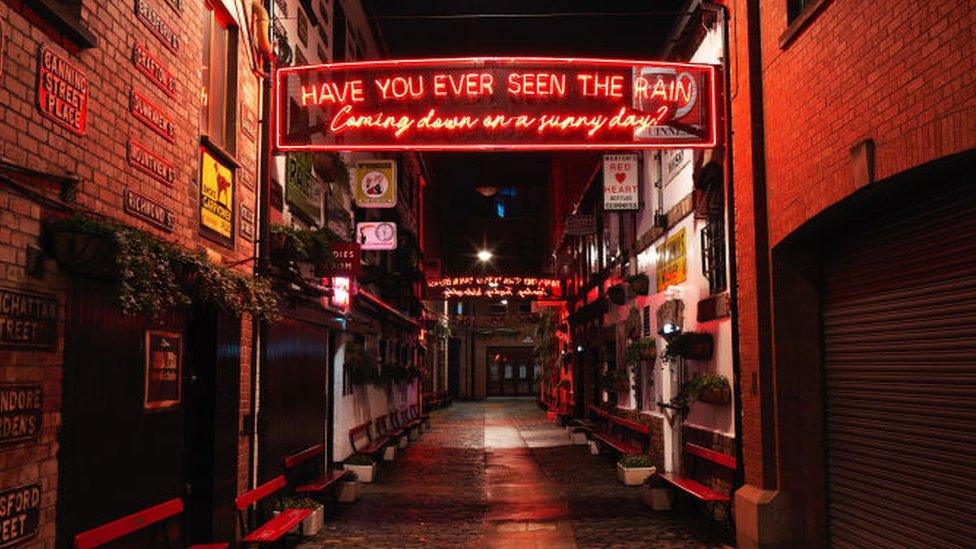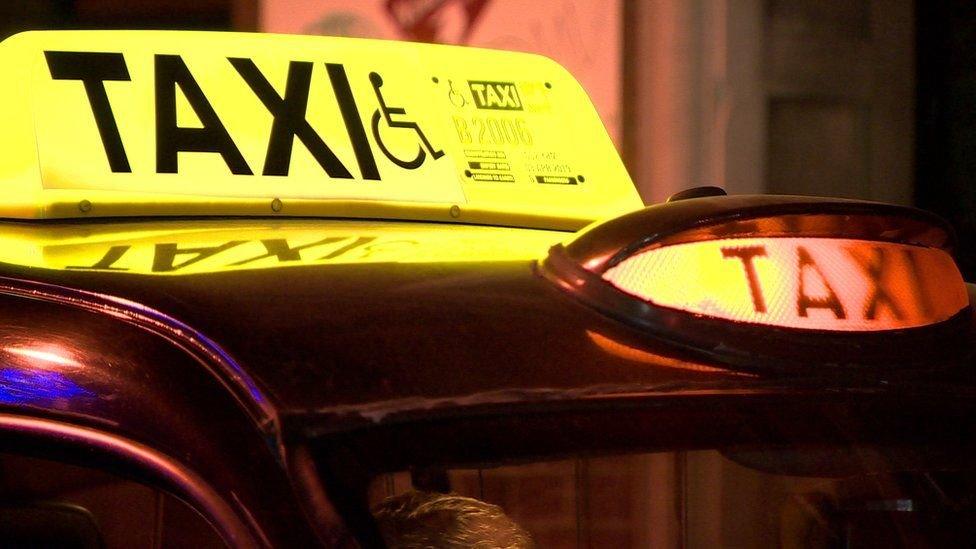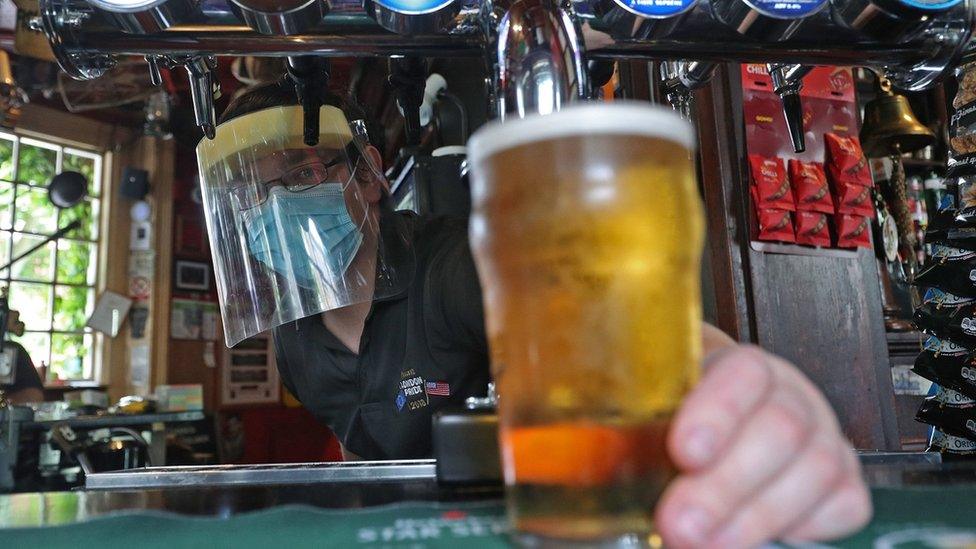Northern Ireland nightlife: Campaigners call for later public transport
- Published
- comments

Nightlife plays an important "cultural and social role", says the Free the Night campaign group
Later public transport and staggered closing times for pubs and nightclubs are among measures that would transform nightlife in Northern Ireland.
That is according to a new report from the Free the Night organisation, which campaigns to improve nightlife.
It also said that major towns and cities in Northern Ireland should appoint dedicated "night czars".
Some cities in the UK, such as London, Bristol and Manchester, have appointed specialist night-time economy advisors.
Free the Night said nightlife had an important "cultural and social role" in Northern Ireland and brought people and communities together.
The first major changes to Northern Ireland's licensing laws in 25 years were agreed by Stormont assembly members in 2021.
Among other things, that move extended the opening hours for pubs and clubs and removed Easter restrictions on alcohol sales.
But there have been recent complaints from some venues about a shortage of taxis or a lack of public transport to enable people to get home after a night out.
In summer last year, Northern Ireland's biggest taxi firm Fonacab said it and other firms had been "absolutely slaughtered with work" due to a shortage of drivers.
Better and extended public transport is one of 13 recommendations in the just-published Free the Night report entitled Transforming Nightlife in Northern Ireland, external.
The report said that public transport should reflect the fact that pubs and clubs can now stay open to 03:00 at weekends.
"Public transport services should be extended in line with the current and amended licensing laws in Northern Ireland, not only improving public safety but social inclusion and social connection too, especially in rural settings," it said.

Many taxi companies in Northern Ireland have struggled to recruit enough drivers to cover the demand for their services
"More night-time public transport also reduces pressures faced by taxis and cuts carbon emissions."
A survey of more than 900 people, which informed the report, also suggested support for more varied licences to "stagger" closing times.
"Respondents agreed that staggered closing times for pubs, bars and nightclubs would cut bottlenecks at 3am," the report said.
"The uniformity of venue closing times means too many people try to access taxis at once.
"This exacerbates night-time transport challenges, creating bottlenecks at 3am and leaving many with no way home.
"This creates other safety risks which police and community safety partnerships are all too familiar with."
Therefore Free the Night recommended more varied licensing laws that could give some premises and venues the option to open for 24 hours in "dedicated nightlife districts" without creating a nuisance for local residents.

Alcohol was not the most important factor for a night out for many of the people who responded to the survey
It also said that as licencing focused on the sale and supply of alcohol it did not take into account other "cultural" venues or clubs where people went primarily to dance, listen to live music or socialise rather than drink alcohol.
"The alcohol trade forms only part of the economic activity of the city in the evening and at night," the Free the Night report said.
It said that fewer than a quarter of the 900 people who responded to their survey used nightlife to get drunk, with many more going out primarily to meet friends or family or experience music or culture.
Among the other recommendations in their report is a new "evening and night-time minimum wage".
"Wages do not accommodate unsociable hours and lack of cheaper public transport at night," said Free the Night.
Night-time minimum wage
It said that many of those employed in hospitality, entertainment and the arts who made up the bulk of workers in the night-time economy earned much less than the median gross weekly wage in Northern Ireland.
According to the Northern Ireland Statistics and Research Agency (Nisra), the median gross weekly wage in Northern Ireland in April 2022 was £592.
According to Free the Night, "a new evening and night-time minimum wage would lessen the financial pressures for nightlife workers and encourage more people to pursue professions between 6pm and 6am".
The report also calls for a night-time economy taskforce to be created in Northern Ireland with input from a range of organisations and government departments.
Free the Night was founded by DJ Holly Lester and Boyd Sleator and the research for the report was led by Ciara Power from Queen's University Belfast.
The report was released during the Music Cities Afternoon as part of Sound of Belfast 2022.
A Translink spokesperson said it would be operating additional late-night bus, coach and train services in the lead up to Christmas.
"For Belfast Metro, our 'NightMover' services will operate on Fridays and Saturdays from December 2-23 (also including Thursday 22nd December), with departures at midnight and 1.00am on main routes.
"We will continue to work with all stakeholders to collectively promote the value of late-night public transport in our drive to create a more connected, sustainable and liveable city for all."
Related topics
- Published3 July 2021

- Published17 August 2021

- Published28 June 2022
